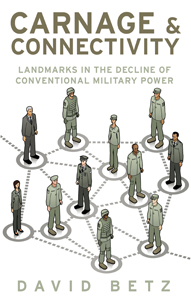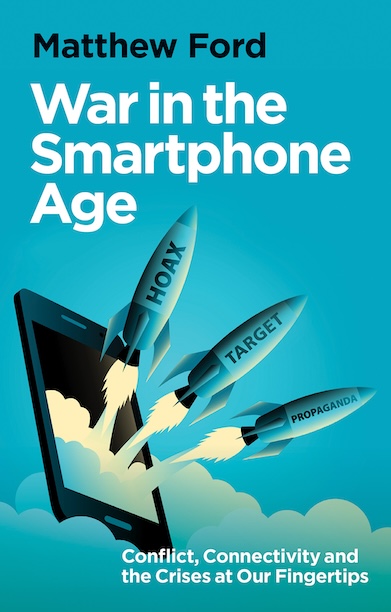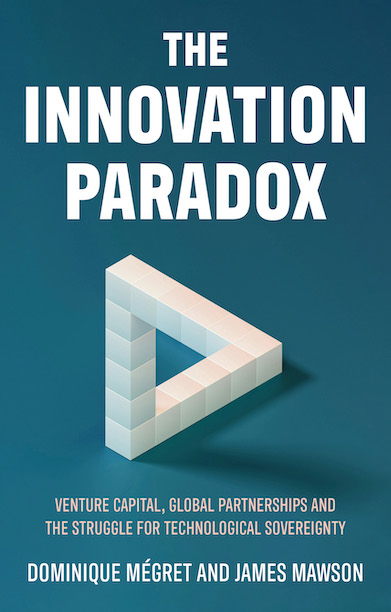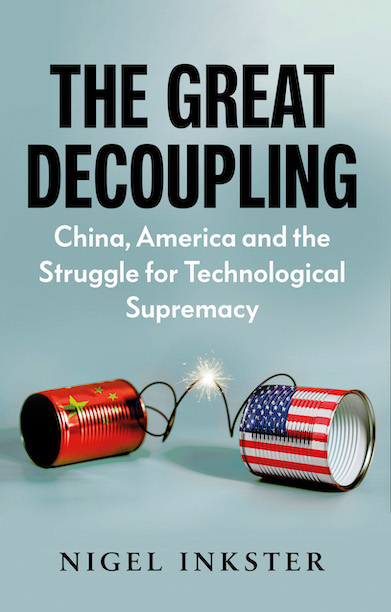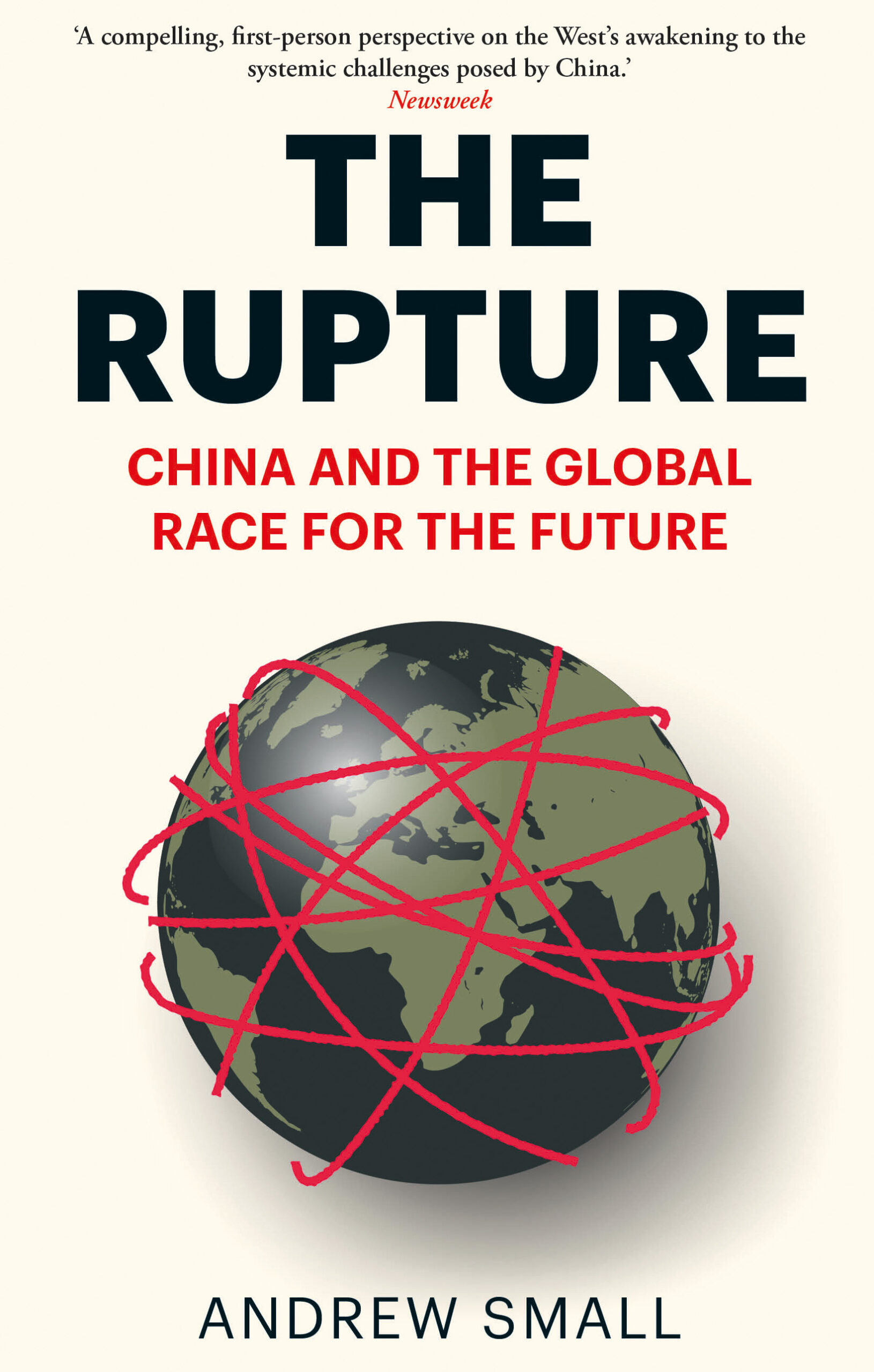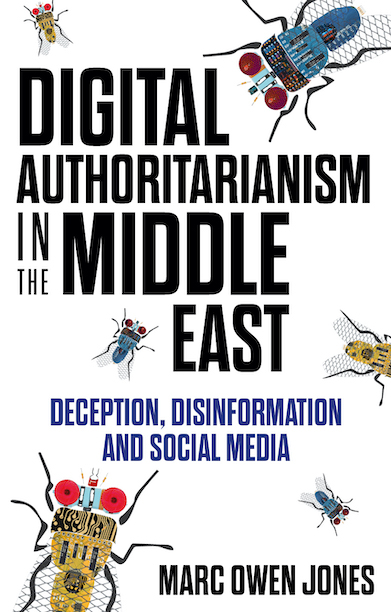Carnage and Connectivity
Landmarks in the Decline of Conventional Military Power
Charts the evolution of military power in the digital age, from conventional warfare to cyberwar, and examines its implications.
Description
The burgeoning of global connectivity in recent decades is without historical parallel and the ‘wiring up’ of the world continues apace, even in the poorest regions. Flux and ever-quickening change are the leitmotifs of the ‘information age’ across a swathe of human enterprise from industry and commerce through to politics and social relations. This is no less the case for the patterns of war, where change has been disorientating for soldiers and statesmen whose confidence in the old, the traditional, and the known has been shaken.
David Betz’s book explains the huge and disruptive implications of connectivity for the practice of warfare. The tactical ingenuity of opponents to confound or drop below the threshold of sophisticated weapons systems means war remains the realm of chance and probability. Increasingly, though, the conflicts of our time are less contests of arms than wars of hearts and minds conducted on a mass scale through multimedia communications networks. The most pernicious challengers to the status quo are not states but ever more powerful non-state actors.
Table of contents
Introduction
Carnage
Connectivity
Power
1. The Context of Contemporary War
The Great Illusion Redux
Fragmentation vs Consolidation
I Feel the Need, the Need for Speed
Myth Behind Us and Myth Before Us
2. War Without Chance: Something Better Than War
Post-modernity, Generally Right
The Bounty of Data, Beauteous and Baffling
Chance!
The Other Revolution in Military Affairs
3. Overestimate Yourself, Underestimate Your Enemy, Never Know Victory
In Search of Proper War As in Business, So too in War?
Speed, Always Speed!
War, Not a Range Exercise
4. War Without Passion: Something Other than War
No Peace Through Superior Firepower
In-Between war Passion!
Post-mythological War
5. Theatre of War The High Price of Ownership
As Greece to America’s Rome
Counterinsurgency: The Movie!
Ramparts of Willed Incomprehension
6. War Without Reason: Something Just Short of War
A New Terror, Another Silver Bullet
The ‘Indirect Approach’ Version 2.0
Reason!
The Sound of Two Hands Clapping
7. The New Age of Anxiety
Utopia to Dystopia
Cyber and the Sea
Global Commons to Global Village
Information and Revolution
8. Conclusion
Things fall apart, in new ways and old
Ripples of rage
Retribalisation
Reviews
‘In this challenging and imaginative book, David Betz explores the interaction of violent conflict with the connectivity that defines the modern world, and shows the confusion this causes to those who still prefer to think of war in terms of regular armies fighting decisive battles.’ — Sir Lawrence Freedman, Emeritus Professor of War Studies, King’s College London, author of Strategy: A History
‘Betz provides much food for thought regarding the nature of war and the nature of connectivity. The two now co-exist, but neither has truly altered the other, just how we relate to them.’ — Antulio J. Echevarria II, US Army War College
‘It has become fashionable to speak vaguely about security threats that emerge from “globalisation.” Defence strategy, however, must rest on more than amorphous language; it must be grounded in an understanding of continuities in the nature of war as well as changes in the character of armed conflict. David Betz’s book may have arrived just in time to rescue us from flawed conventional wisdom and lend clarity to our thinking about national and international security.’ — H.R. McMaster, author of Dereliction of Duty: Lyndon Johnson, Robert McNamara, The Joint Chiefs of Staff and the Lies that Led to Vietnam
‘Carnage and Connectivity is a timely, erudite, and even-handed assessment of the Information Revolution’s impact on the conduct of war. Heavily laced with keen insights and incisive commentary, the book debunks the hyperbole and putatively paradigm-changing properties of the cyber domain. Betz’s views will be of immediate utility to the defence policy and academic communities on both sides of the Atlantic.’ — F. G. Hoffman, Senior Research Fellow, National Defense University, USA
Author(s)
David Betz is a senior lecturer in the Department of War Studies at King’s College London. He is the author, most recently (with Tim Stevens) of Cyberspace and the State: Toward a Strategy for Cyberpower (IISS, 2011).
